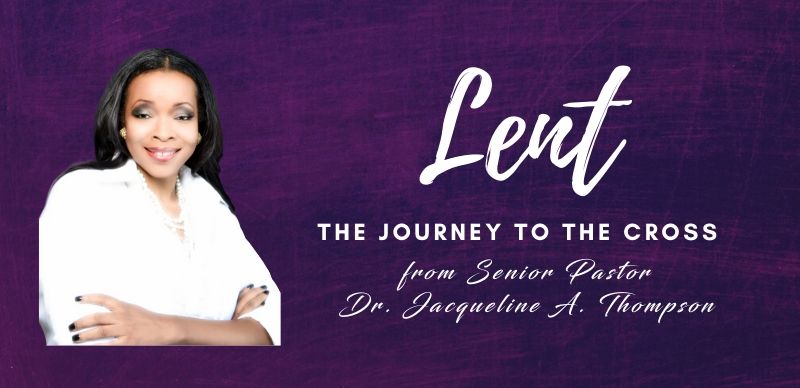
February 26, 2020
And so it begins…The Journey to the Cross! Today is Ash Wednesday, and many Christians across the globe have already found their way to houses of worship for the imposition of ashes. Persons who have participated in this rite are accustomed to hearing these words spoken to Adam and Eve in the garden as a consequence to their disobedience:
By the sweat of your brow
you shall eat bread,
Until you return to the ground,
from which you were taken;
For you are dust,
and to dust you shall return. (Genesis 3:19)
The ashes are meant to be a reminder of our frailty and mortality. It is meant to invoke reflection upon the fragility of our humanity and evoke a desire to repent. “Repent and Believe the Gospel” is another phrase often heard on Ash Wednesday. Now, there is a concept that feels almost foreign in these times we live in: Repentance. To most, it is simply an admission of guilt along with feelings of sorrow for actions and behaviors. But the biblical concept of repentance is much more. In the New Testament, the primary word for repentance is Metanoia. Consult any commentary or Bible Dictionary and it is translated for us as a change of mind. Most churches lift repentance as a pre-requisite for personal salvation and holiness. But upon deeper analysis, it holds a much richer meaning.
When Jesus invited his hearers to “repent and believe”, he was not asking them to simply forsake sins. He was challenging them to a new way of living. As New Testament scholar N.T. Wright points out in his book, The Meaning of Jesus: Two Visions:
In our world, telling people to repent an believe is likely to be heard as a summons to give up personal sins and accept a body of dogma or a scheme of religious salvation. This is a classic occasion where we have to unlearn our normal readings (including our faith readings) of first-century texts. As we see in Josephus [first century Jewish historian], the phrase means, basically, “Give up your agendas and trust me for mine.”1
To repent is to give up my agenda and trust God’s agenda. A challenging notion, especially in this Election season where our entire focus is centered on the agendas of humankind. Without intentional reflection, this hyper-focus spills over into our personal lives beckoning us to reflection and repentance. In what ways and in what areas has my agenda eclipsed God’s agenda? How can this year’s Journey to the Cross reverse the order? These are the questions that beg my attention this Lenten Season.
I hope to make it to a Mass today despite the lateness of the hour. As a former Catholic schoolgirl, I remain partial to the rituals and rites that peppered my childhood religious experiences. I will be praying for each of you and myself. I will be praying that as we embark upon this journey that we arrive at the ultimate place of surrender: Nevertheless, not my will but thy will be done!
Forward Together by Faith,

Dr. Jacqueline A. Thompson
Senior Pastor
1Borg, Marcus J., and N.T. Wright. The Meaning of Jesus: Two Visions. San Francisco, Harper San Francisco, 2007) 38.


